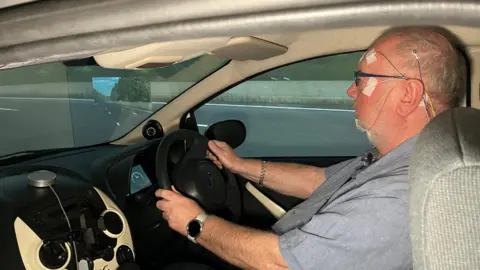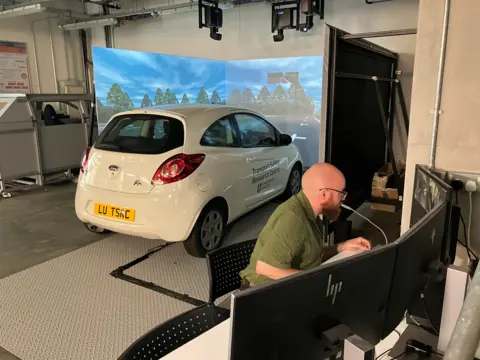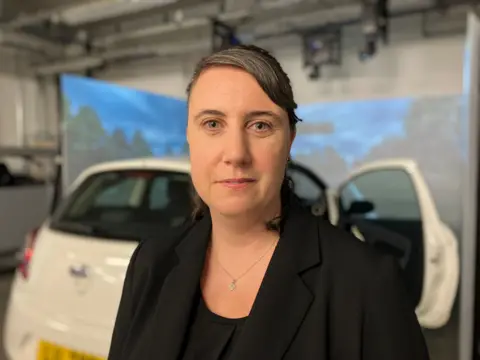Sleep disorder drivers tested on simulated motorway
 BBC
BBCA new study is putting drivers with a sleep disorder behind the wheel on a simulated motorway inside a Leicestershire laboratory.
Loughborough University is testing if a “caffeine-nap” can help drivers with obstructive sleep apnoea (OSA).
Drivers with the condition, which affects breathing during sleep, are being given a caffeinated drink and a 15-minute sleep by researchers before being set on a motorway driving simulation.
If the results show the technique is effective, new guidance can be issued by The Road Safety Trust to patients, medics and the Driver and Vehicle Standards Agency (DVSA).
Government figures show fatigue contributed to almost 1,300 collisions during 2021, and OSA patients are at an increased risk of tiredness at the wheel.

Participant Gary Spence said: “The simulation is very tiresome, you do tend to drift off and I have actually crashed once, lost control and went up the embankment.
“I used to, in previous careers, do 40,000 business miles a year. But I’d be tired when I got up and then to do five hours drive, I would stop every two hours.
“To me it’s very valuable, you hear people talk about ‘I have a nap’, or ‘I have a cup of coffee’, but with this study we’ll be able to scientifically prove which one works the best and put some hard facts behind what everybody peddles as the best thing to do.”

Loughborough University said it would like more people with OSA to volunteer to take part in the research.
Project lead Professor Ashleigh Filtness said: “Because this has always been done with healthy young men it’s difficult to know if this advice is as beneficial for other sections of the population.
“Once we’ve done our research and know what the best way to improve alertness is, we’re hoping to produce some practical guidance and get it out there to as many people who have OSA as possible.”
Sonya Hurt, chief executive of The Road Safety Trust, which is funding the research, said: “Driver fatigue causes hundreds of collisions a year. It is a really serious issue.
“This project can play a big role.”
Follow BBC Leicester on Facebook, on X, or on Instagram. Send your story ideas to [email protected] or via WhatsApp on 0808 100 2210.
